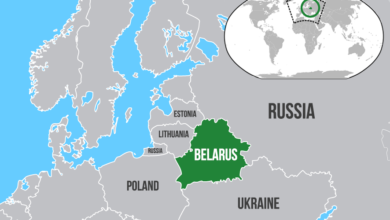The fall of the Berlin Wall still stands as the most recognized symbol of the overthrow of the socialist camp. Imperialist forces around the world hailed it as the reaffirmation of the superiority of capitalism over socialism. For many leftists and progressives, that moment and the subsequent overthrow of the Soviet Union would pave the way for demoralization and loss of hope in the struggle.
|
According to a Reuters report, this year’s sales of Marx’s “Das Kapital” up to October were already more than triple the total sales for all of 2007 in the territory of the former socialist republic. A recent poll found that 52 percent of eastern Germans believe the free market economy is “unsuitable” and 43 percent affirmatively stated a preference for socialism over capitalism.
The impetus behind this rejuvenated interest in Marxist thought appears to be the tangible experience of the “horrors of capitalism,” as candidly and aptly described by an IT worker from eastern Berlin. In the words of one worker, a 76-year-old retired blacksmith, “the free market is brutal. The capitalist wants to squeeze out more, more, more.” Another worker observed, “Karl Marx was spot on.” (Reuters, Oct. 16)
The Left Party, whose members include Marxists, social democrats and other progressive and left forces, now commands 30 percent support in eastern Germany.
The deepening economic crisis has highlighted for workers around the globe the destructive nature of the capitalist system. For those workers who once lived in a socialist country, the contrast is stark.
In the former socialist Eastern European countries, life has changed drastically since the overthrow of the communist-led governments. The means of production were almost entirely state owned in East Germany. The state bore 80 percent of the costs of basic supplies, from bread to housing, to ensure constant prices. Subsidies guaranteed low rents.
In East Germany, for instance, full-time jobs were guaranteed and access to education and health care was free. Not so under free-market Germany. The right to education and health care are not protected. Currently, unemployment is double that of western levels. This is the nature of the capitalist system.
As one eastern German worker observed, “No one worried about money because money didn’t really matter.” Under socialism, “you had a job even if you didn’t want one.” In free market Germany, millions of jobs were lost when factories were shut down following reunification. Unemployment is currently 14 percent and rising. (Reuters, Oct. 16)
The capitalist class, in eastern Germany as elsewhere, is driven by the need to turn a profit. If the capitalists cannot sell their commodities for a profit, they do not hesitate to cut production and lay off workers. To them, workers are expendable; profits are not.
“It took just a few weeks to realize what the free market economy was all about,” observed one eastern German. “It’s rampant materialism and exploitation. Human beings get lost.”
The restoration of capitalism in East Germany, above all, brought back the very contradictions that pave the way for socialism. The revived interest in Marxist economics and socialism is a testament to the bankruptcy of the capitalist system.






